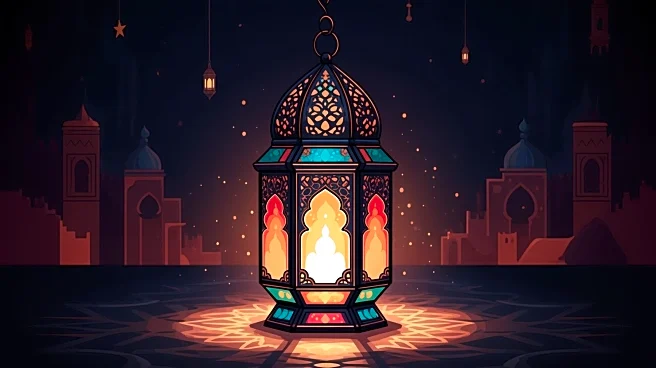What's Happening?
The 2025 Africa Cup of Nations (AFCON) is set to take place in Morocco from December 21, 2025, to January 18, 2026. This marks a historic winter edition of the continent's premier football tournament.
Morocco, known for its deep footballing heritage and world-class infrastructure, will host the event across six cities and nine stadiums. The tournament will feature 24 nations, including reigning champions Ivory Coast, who won the 2024 final against Nigeria. The group stage schedule has been released, with matches starting on December 21, 2025, featuring teams like Morocco, Egypt, Nigeria, and Senegal.
Why It's Important?
Hosting the AFCON 2025 is significant for Morocco as it showcases the country's exceptional football infrastructure and hospitality. The event is expected to boost local tourism and economy, drawing fans and visitors from across Africa and beyond. For the participating nations, the tournament offers a platform to demonstrate their football prowess and compete for continental glory. Teams like Ivory Coast, Morocco, and Senegal are among the favorites, with a strong tradition in African football. The event also provides opportunities for emerging talents to shine on a major stage.
What's Next?
As the tournament approaches, teams will finalize their preparations and strategies to compete effectively. Fans and stakeholders will closely watch the performances of key players and teams, anticipating thrilling matches and potential upsets. The host nation, Morocco, will focus on ensuring smooth logistics and security for the event, while participating countries will aim to capitalize on their strengths and address any weaknesses. The tournament's outcome could influence future football dynamics in Africa, impacting team rankings and player careers.
Beyond the Headlines
The AFCON 2025 could have long-term implications for African football, potentially influencing investment in sports infrastructure and youth development programs. The event may also foster greater unity and cultural exchange among African nations, promoting football as a tool for social cohesion. Additionally, the tournament's success could enhance Morocco's reputation as a capable host for international sporting events, paving the way for future opportunities.










